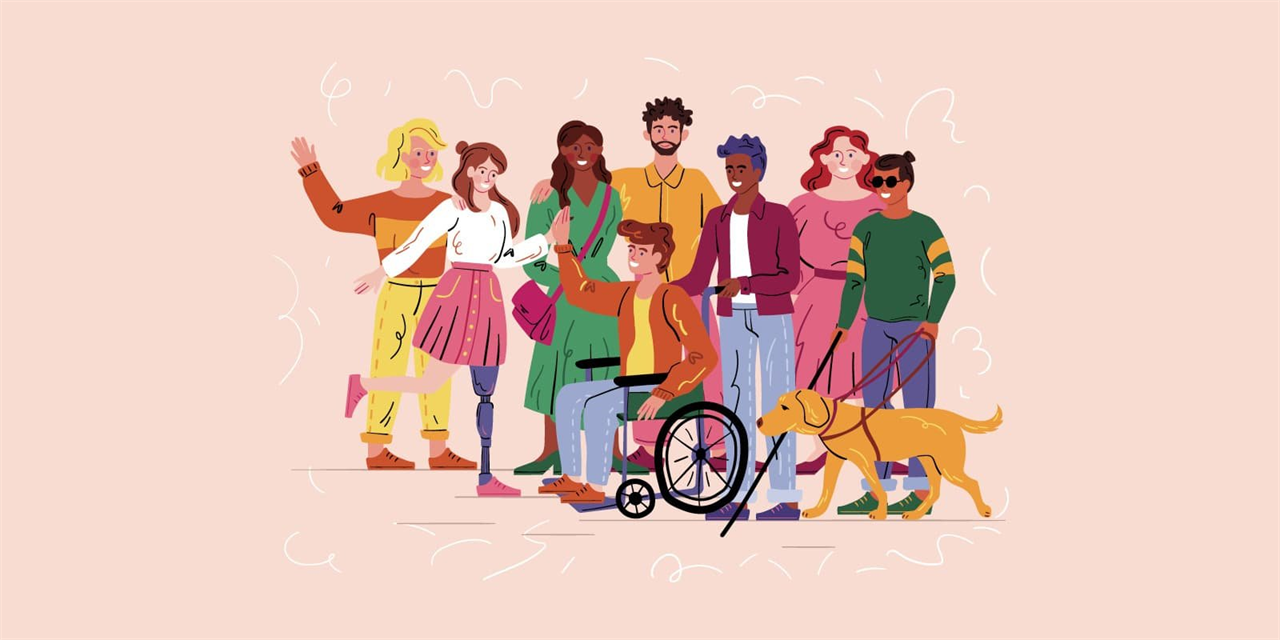The Reality of Living with a Disability
 By Laken Franchetti, Staff Writer
By Laken Franchetti, Staff Writer
On Nov. 9, Interdisciplinary Studies professor Stephen Stern and alumna Nathalia Mazza ’20 held a lecture entitled The Reality of Living with a Disability, to discuss their own experiences and how college campuses can be changed to be made more navigable for people with disabilities. This lecture was sponsored by Diversity and Inclusion, Provost’s Office, College Advancement, Enrollment and Educational Services, and Communications and Marketing.
Interim Chief Diversity Officer Carlos Aquino gave introductory remarks and spoke towards his hope to push the agenda discussed within the lecture in order to make the college more inclusive and accepting to all students.
Mazza took over the discussion from there. She is currently studying at George Washington University to become a special education teacher. Diagnosed with ADHD, general anxiety disorder, and autism, she considers herself an advocate for students with learning disabilities in the hopes of removing the stigma surrounding such. Mazza began the conversation by defining two important terms: ableism and social equity.
“Ableism is the discrimination of and social prejudice against people with disabilities and is rooted in the assumption that disabled people require ‘fixing.’ It includes harmful stereotypes, misconceptions, and generalizations of people with disabilities,” Mazza said. He also spoke about how ableism can be both intentional or unintentional, so it is important to be cognitive of what people are saying and doing when interacting with people who have disabilities.
“Social equity takes into account systemic inequalities to ensure everyone in a community has access to the same opportunities and outcomes. Equity of all kinds acknowledges that inequities exist and works to eliminate them,” said Mazza.
Mazza spoke about her own experiences with her learning disabilities while at college, and during the winter break of her freshman year, she was diagnosed with autism. This led to her taking action and creating Phoenix Rising, a club on campus for students with disabilities that can allow them to be in a comfortable environment with conversations that do not lead to them being judged. Professor Stern is currently the faculty advisor for the club.
Wanting more people with disabilities to speak up about this issue, Mazza conducted a survey completed by students with disabilities such as anxiety, depression, ADHD, Autism Spectrum Disorder, Tourette syndrome, and OCD. Issues such as workloads, attendance disputes, testing accommodations, and rigid deadlines were discussed. When asked if the students had ever experienced ableism by faculty or staff members at the college, some said they had not, yet others shared their stories about professors saying insensitive things about their disabilities.
Mazza reflected, “Things like saying, ‘You don’t look disabled.’ ‘You don’t look autistic.’ ‘You don’t look like you have ADHD.’ Those things are not compliments, Those hurt us. Those say to us that our experiences don’t matter, and they do. They’re real. Just because they are in our heads doesn’t make them imaginary.”
Going on to discuss the survey responses to gaining support, students with disabilities suggested how people can simply ask how they can be supported and to take action. Taking notice and being willing to reach out is a major step in making it clear that someone is accessible. Mazza pressed that institutional suggestions, such as creating a sensory safe place, need to be taken seriously.
Mazza said, “Our goal as a college is not to make all disabled people go to college. The goal is to make college a navigable option for those who want it. We can only do this by creating an equitable and inclusive campus for all.”
Professor Stern then began to share his experiences, revealing he himself has learning disabilities. His discussion focused on reading something he had written the previous in response to a department chair announcing that students challenged by cognitive, psychological, or emotional issues would be referred to as “differently-abled” rather than disabled. This linguistic intervention could profoundly affect a child, and Stern expressed his concerns over the change by delving into his own experiences with learning disabilities.
Stern said, “[People] used to say growing up, ‘Oh Steven, you are such an exception to the rules.’ In my mind, it was always rules that don’t like exceptions. We were always negotiating with the rules on my behalf, which itself is dimensioned because it sets you apart.”
Describing how learning disabilities such as ADHD can make people more interest-driven and view time as a nonlinear quantity, Stern illustrates how people are constantly seeking stimulation and dopamine. Students with learning disabilities thus can have a more difficult time with their academics.
Stern said, “I used to tell my mother that it was like I was a collage. Everyone else’s collage comes with glue, and I just get my spit. Parts are falling off the collage all day, and I’m sitting there trying to keep it up and compete with others.” He concluded on how people with disabilities are learning disabled, not differently-abled.
A question and answer section followed the lecture, opening up more discussion about the college’s accommodations and how professors and faculty can become more aware of the situation. Carlos Aquino mentioned that the college has a plan to eventually form an office of disabilities as a resource for students. The lecture concluded that the accommodations people with learning disabilities need to make represent the social deficiencies that have formed within society.
